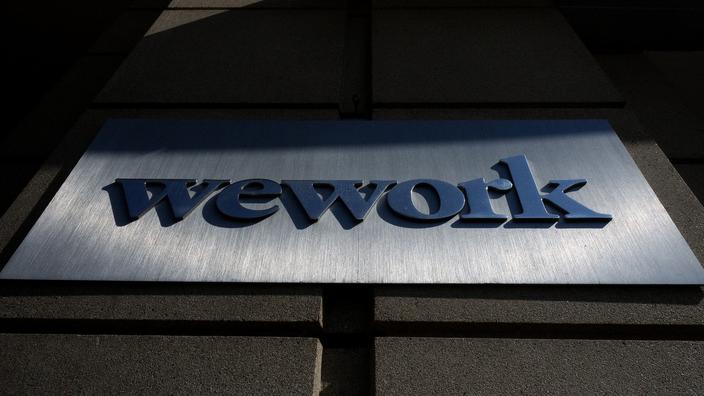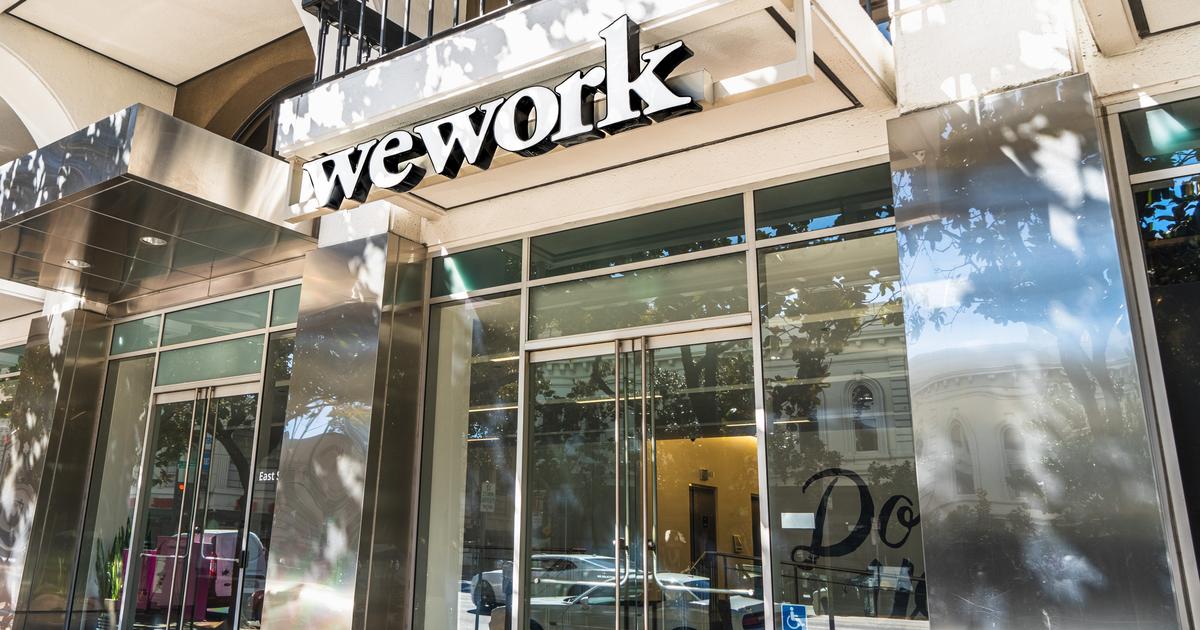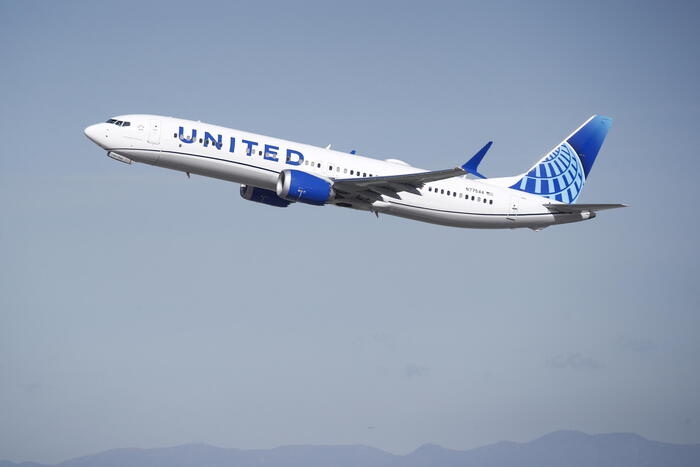WeWork's financial woes and its failed IPO hit the headlines in 2019. Two years later, the American giant of shared offices, which sought to renew itself in the wake of the pandemic, returned to Wall Street.
"READ ALSO -
How Softbank straightened WeWork
The merger of WeWork with BowX, a vehicle (or SPAC) already listed in New York, was acted on Tuesday, and the new entity, valued at around nine billion dollars, will be listed on Thursday under the symbol "WE".
By taking this step, WeWork wants to turn the page on the era of Adam Neumann, its ex-boss and co-founder, whose escapades and tempestuous character had brought the company to the brink of bankruptcy.
Valued at $ 47 billion in early 2019 by the Japanese group SoftBank, one of its biggest investors, WeWork felt the ground slipping under its feet when the financial abyss in which the company was was exposed.
Austerity cure
To raise the bar and clean up the finances, WeWork appointed as its head in February 2020 Sandeep Mathrani, a veteran of the real estate sector with a more consensual profile than that of Adam Neumann, pushed to the exit with a large severance package. Sandeep Mathrani and the new management team have proceeded with a cure of austerity, cutting several thousand jobs around the world and reducing the number of their rental contracts.
"WeWork has transformed thanks to the restructuring of its activities and its financial structure, the readjustment of its real estate portfolio and, above all, the reframing of its benchmark product"
, told AFP Anthony Yazbeck, director of operations of the group.
Known in its early days for targeting a young audience, largely made up of self-employed workers, the start-up has turned more to companies with more than 500 employees looking for workspaces in the heart of metropolises, where WeWork offices are typically located. They now represent a little more than half of WeWork's customers, against 42% at the end of 2019. This is the case in Paris of the communication agency Dentsu which left its headquarters in Courbevoie at the beginning of September to settle. in a building on avenue de Wagram, in the 17th arrondissement.
“We wanted
nicer
offices with more collaborative space than before,”
explains Pierre Calmard, CEO of Dentsu France.
"The idea is to go to work to find real pleasure and meet colleagues there, rather than it being an obligatory passage or a ritual from Monday morning 9:00 am to Friday 7:00 pm."
Flexibility
The pandemic and the greater flexibility of workplaces have accelerated this movement. Dentsu, for example, allows its employees to come to the office as many days as they wish in the week, alternating with teleworking.
“To my surprise, employees are coming back in droves, if not more than they could with the new system. It is not uncommon for us to be at full gauge
,
”
assures Pierre Calmard. WeWork also launched a monthly subscription during the pandemic, giving access to common areas in any of the group's buildings around the world, as well as a pay-on-demand service in several countries (including the United States, United Kingdom). United and Australia), allowing rooms to be rented by the hour or by the day.
However, some customers have complained about contractual conditions imposed by WeWork at the height of the lockdowns.
In May 2020, New York members, represented by lawyer Jim Walden, demanded that the company stop charging them their membership fees until health restrictions were lifted and threatened to take legal action. justice.
Contacted by AFP, Jim Walden's cabinet declined to comment on the procedure.
$ 658 million in revenue
WeWork grossed $ 658 million in revenue between July and September, but continues to lose money.
The group, which has 762 workspaces in 38 countries and 150 cities, hopes to become profitable in the first quarter of next year.
It focuses on the sustainability of new ways of organizing work in the post-pandemic world.
This vision convinces Evgeniy Antoshkin, a Russian entrepreneur based in New York City who has rented WeWork spaces in the United States, Brazil and Colombia.
"I am ready to buy their shares on the stock market"
, assures the young man.
“They've discovered a niche of bringing people together around what they do for a living.
I don't think this need will go away. ”















/cloudfront-eu-central-1.images.arcpublishing.com/prisa/H7U7FJNUZBG6BPL5PZCMGC6EUY.jpg)